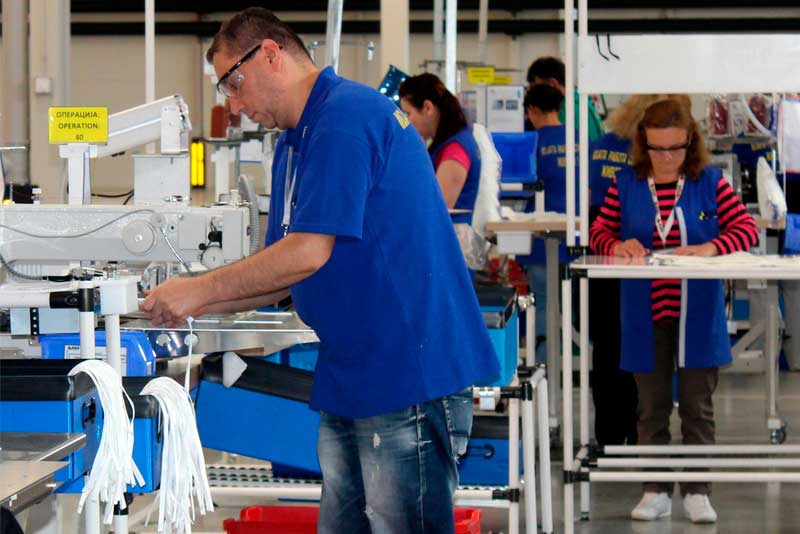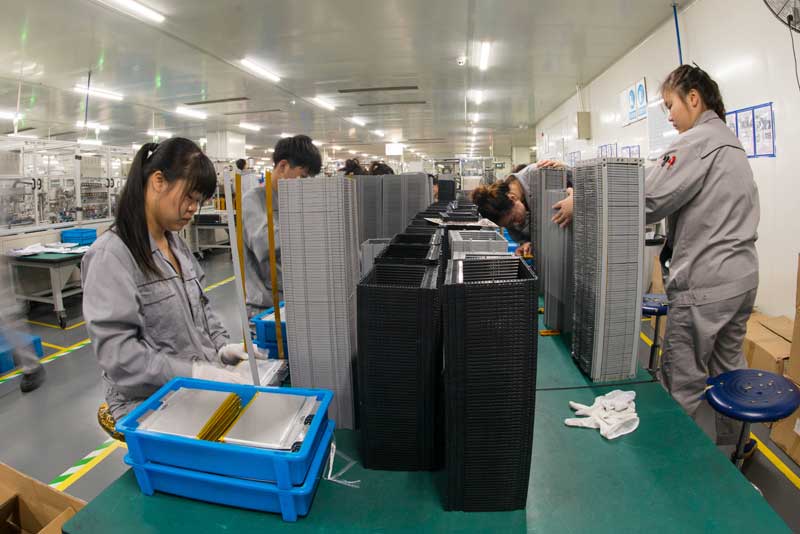The coronavirus pandemic has already cost thousands of lives and forced families to make drastic changes to their way of life. It’s also imposing another kind of human toll, by putting at risk the jobs and livelihoods of people around the world.
The damage is already evident. With public events getting canceled and people encouraged to avoid crowds, the travel and tourism industries are seeing a steep drop in demand. Manufacturers connected to global supply chains are experiencing severe disruptions. Some companies are already facing a cash crunch, forcing them to scale back operations and lay off employees. The stress is especially great on micro, small, and medium-size enterprises, which often have less capital for their day-to-day operations than bigger companies, and are therefore highly vulnerable to global shocks. The OECD projects that global growth this year will be slower than expected, even if the outbreak is contained, and that world output may contract in the first quarter.
In response, IFC is increasing the amount of financing for companies to help fight the outbreak. IFC’s Board of Directors on Tuesday approved an additional $2 billion in fast-track financing, bringing the total to $8 billion in support to help sustain economies and protect jobs. The IFC response is part of a $14-billion package being deployed by the World Bank Group.

Keeping companies solvent is key to saving jobs and limiting economic damage. Photo by Robert Spasovski/IFC
“Not only is this pandemic costing lives, but its impact on economies and living standards will likely outlive the health emergency phase. By ensuring our clients sustain their operations during this time, we hope the private sector in the developing world will be better equipped to help economies recover more quickly,” said Philippe Le Houérou, chief executive officer of IFC. “In turn, this will help vulnerable groups to more quickly recover their livelihoods and continue to invest in the future.”
IFC’s goal is to harness the private sector to improve lives in developing countries. In times of crisis, supporting the private sector is crucial, since businesses are the main driver of employment in developing economies. Our experience from past shocks, including the global financial crisis in 2008 and the Ebola crisis in West Africa, has shown that keeping companies solvent is key to saving jobs and limiting the economic damage.
What does this all mean, for companies and their workers?
Take the real-sector program. If an IFC client does business in a hard-hit manufacturing sector, IFC can step up with a loan to boost their working capital. This tool can also be used by pharmaceutical companies and medical-equipment suppliers overwhelmed by demand. In the case of the trade-finance program, IFC has already helped banks in Vietnam increase their trade-financing limits to $294 million, a deal brokered in nine working days.

Small enterprises often have less capital for their day-to-day operations than bigger companies. Photo by Iwan Bagus/IFC
“Any crisis response is only as effective as your ability to deploy it quickly to the market,” said Hyung Ahn, senior manager in IFC’s Global Industry, Financial Markets, Trade and Supply Chain unit, and a veteran of IFC’s 2008 crisis response. “That’s our focus now.”
IFC is reaching out to its clients to see who are most in need. The financial support will be global.
“COVID-19 is exacting a toll on people across the region, and it’s important we work to lessen that burden by helping the private sector continue to operate and retain staff, in the face of declining demand and supply chain challenges,” said Vivek Pathak, IFC’s Regional Director for East Asia and the Pacific.
Published in March 2020

